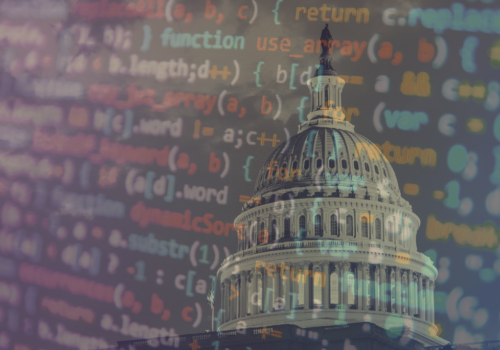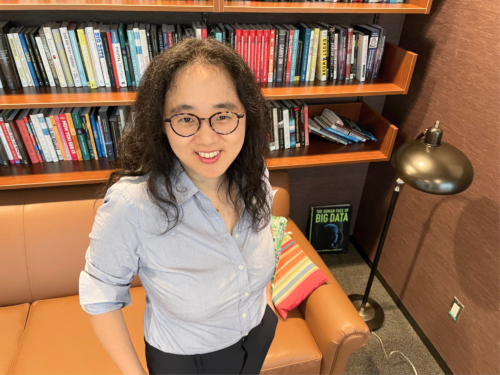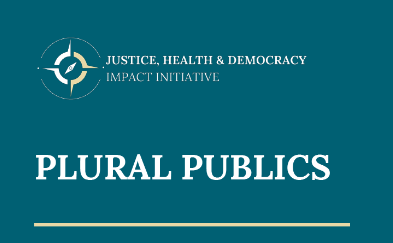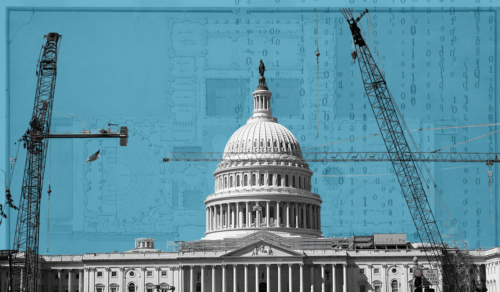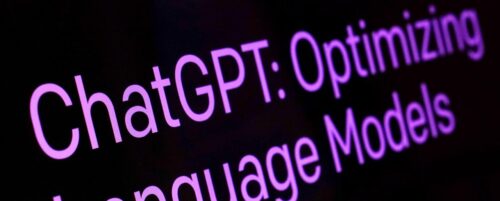
Danielle Allen
Professor of Public Policy, James Bryant Conant University Professor
Understanding the promises and perils that AI holds for the future of our democracy
Allen Lab for Democracy Renovation, Allen Lab: Technology & Democracy, Nonviolent Action Lab, Reimagining Democracy Program
The proliferation of artificial intelligence has the potential to upend our democracy — for better or worse.
AI tools could allow for new forms of participation while at the same time facilitating the spread of misinformation. As regulators and policymakers struggle to understand the implications of this new technology, Ash Center experts are answering questions about how best to govern AI and not just reactively respond to the many issues that continue to arise.
Can AI be a force for good in our democracy? How do we prevent it from becoming a tool for those who wish to undermine our institutions and trust?
Explore our latest events, research, and writing below.
Professor of Public Policy, James Bryant Conant University Professor
Director, Ash Center for Democratic Governance and Innovation;
Winthrop Laflin McCormack Professor of Citizenship and Self-Government
Adjunct Lecturer in Public Policy
Professor of the Practice of Public Policy, HKS;
Gordon McKay Professor of the Practice of Computer Science, SEAS
Feature
Computer scientist turned social scientist Ashley Lee discusses how policymakers and technologists alike can change the way AI is used — or not used — across the globe.
Commentary
In a new essay, Mary Graham argues that transparency measures can help curtail AI-related risks but not overnight — transparency efforts require sustained, long-term engagement and effort.
Commentary
Imagine that we’ve all – all of us, all of society – landed on some alien planet, and we have to form a government: clean slate. How would we govern ourselves?
Policy Brief
The GETTING-Plurality Research Network submitted a series of memos which respond to various questions posed around the topics of bolstering democracy and civic participation; protecting rights, safety, and national security; and promoting economic growth and good jobs.
Commentary
What if AI turns out to be the one tool able to identify what makes your ideas special, recognizing your unique perspective and potential on the issues where it matters most?
Commentary
In a new article for the Conversation, Ash Center Director Archon Fung and Harvard Law School Professor Lawrence Lessig introduce Clogger, a hypothetical political campaign in a black box.
Policy Brief
In this short web ethics research brief, the authors unpack and comment on the four-step logic at the core of GETTING-Plurality’s foundational white paper, Ethics of Decentralized Social Technologies: Lessons from Web3, the Fediverse, and Beyond. They outline four assertions from the paper that demonstrate the power and the challenge of web ethics – and above all, the urgency – of placing human flourishing at the center of technology governance.
Policy Brief
The authors highlight why we believe the problem of “plural publics” to be a core challenge of data governance, discuss existing tools that can help achieve it and a research agenda to further develop and integrate these tools.
Feature
Arguing that American democracy has been hacked, the computer security expert doesn’t want to just fiddle on the margins when it comes to re-envisioning what a new 21st-century American democracy should look like.
Commentary
ChatGPT and other AIs could supercharge the influence of lobbyists—but only if we let them.
Video
You’re invited to watch a book talk with Harvard Kennedy School’s Bruce Schneier, author of “A Hacker’s Mind: How the Powerful Bend Society’s Rules, and How to Bend them Back.” Schneier was joined in conversation by moderator Archon Fung, Director of the Ash Center for Democratic Governance and Innovation and Winthrop Laflin McCormack Professor of Citizenship and Self-Government.
Commentary
When is it time to start worrying about artificial intelligence interfering in our democracy? Maybe when an AI writes a letter to The New York Times opposing the regulation of its own technology.
Q+A
In a new book, Bruce Schneier details how tricks, exploitations, and loopholes are benefiting those in power — and how a ‘hacking’ mindset can help us set things right.
Digital humanism highlights the complex relationships between people, society, nature, and machines. It has been embraced by a growing community of individuals and groups who are setting directions that may change current paradigms. Here we focus on the initiatives generated by the Vienna Manifesto.
Commentary
“… for all the consternation over the potential for humans to be replaced by machines in formats like poetry and sitcom scripts, a far greater threat looms: artificial intelligence replacing humans in the democratic processes — not through voting, but through lobbying.”
